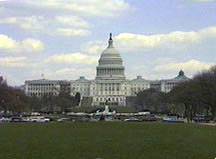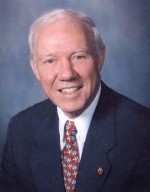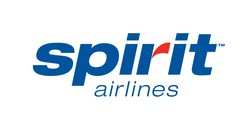Charges For Checked Bags, Other Services Examined
 The fees airlines charge for
checked baggage and other services came under the scrutiny of the
House Transportation and Infrastructure Subcommittee on Aviation at
a Capitol Hill hearing Wednesday. A panel of airline executives was
questioned by the committee about the recent trend followed by most
airlines to charge extra for checked bags, seat selection, and in
one case, a proposal to charge passengers for space in the overhead
bin.
The fees airlines charge for
checked baggage and other services came under the scrutiny of the
House Transportation and Infrastructure Subcommittee on Aviation at
a Capitol Hill hearing Wednesday. A panel of airline executives was
questioned by the committee about the recent trend followed by most
airlines to charge extra for checked bags, seat selection, and in
one case, a proposal to charge passengers for space in the overhead
bin.
Full committee Chair James Oberstar (D-MN) said that he and
subcommittee chair Jerry Costello (D-IL) requested a study by the
Comptroller General in August 2009 due to the proliferation of
ancillary fees charged by the airline industry. He said they were
concerned that fees – many of them inescapable – were
becoming excessive and were diverting revenue from the Airport and
Airway Trust Fund, the balance of which is nearing zero, as well as
the impact of such fees on consumers.
"For example," Oberstar said in his prepared remarks, "a family
of four traveling on a week-long vacation with each person checking
a bag could pay up to $200 in baggage fees on top of airfare. This
does not include fees for meals, beverages, blankets, pillows,
early boarding, and more, which can quickly add up. While some have
said that ticket prices have decreased, I am concerned with the
addition of baggage and other fees, passengers may be paying the
same price, if not more, for the total cost of their air
travel."

Rep. James Oberstar
Oberstar said that unbundling of fares and with a decline in
passenger traffic have driven down average ticket prices, according
to the GAO, but at the same time ancillary fees have skyrocketed.
"However, few of these fees are taxed for the Airport and Airway
Trust Fund, the primary means for funding airport improvement and
air traffic control modernization," he said. "Aviation excise taxes
are necessary to support the Trust Fund, which in recent years has
provided about 80 percent of the Federal Aviation
Administration’s budget. I am extremely concerned about how
unbundling fees will affect the future of the Trust Fund."
 But Spirit Airlines CEO Ben
Baldanza, who's low-cost airline led the move to additional fees
three years ago, defended the industry practice as being a benefit
to the traveling public by offering lower overall costs. "Carrying
more than one bag is not necessary for all travelers and we believe
it is unfair to charge those customers for extra services they do
not use," Baldanza said. "Indeed, it is the basis for
Spirit’s policy to unbundle services not essential to
passenger transport. The carry on fee for most passengers is $20 -
$30. Spirit reduced its base fares to offset these charges. Spirit
also lowered its checked bag charge to encourage passengers to
check their bags."
But Spirit Airlines CEO Ben
Baldanza, who's low-cost airline led the move to additional fees
three years ago, defended the industry practice as being a benefit
to the traveling public by offering lower overall costs. "Carrying
more than one bag is not necessary for all travelers and we believe
it is unfair to charge those customers for extra services they do
not use," Baldanza said. "Indeed, it is the basis for
Spirit’s policy to unbundle services not essential to
passenger transport. The carry on fee for most passengers is $20 -
$30. Spirit reduced its base fares to offset these charges. Spirit
also lowered its checked bag charge to encourage passengers to
check their bags."
Baldanza also defended the fee which goes into effect August 1st
for space in the overhead compartments on Spirit airliners. "The
primary reason for the carry-on charge was to reduce the amount of
baggage brought into the cabin. Carry-on bags have become a
nightmare for passenger boarding and deplaning. They create a
safety risk for both passengers and flight attendants and lead to
costly flight delays. Significantly, last March the Association of
Flight Attendants reported that 80 percent of flight attendants had
been injured during the last year by moving carry-on bags in and
out of overhead bins." Baldanza said the charge does not apply to
such items as required medical equipment and baby strollers.
He also disputed the committee's assertion that the fees do not
affect the Airport and Airway Trust Fund. "These unbundled services
do not impose any costs on airport infrastructure, on the
nation’s air traffic control system or any other government
services funded by the aviation federal excise tax," he said. "As
such, no additional tax burden should be imposed on the cost of
these ancillary services." He said the best way to boost tax
revenue for the Trust Fund was to get more people flying, and that
Spirit's fee structure was designed to do just that. But he also
said it keeps other airlines in check, using as an example Spirit's
pilots strike in June. "(O)ther carriers, including low fare
carriers, immediately raised prices," Baldanza said. "For example,
JetBlue raised its roundtrip fare in the Fort Lauderdale-San Juan,
Puerto Rico market from under $200 to over $600, while at the same
time putting out a press release that it was “helping
Spirit’s customers.”
 The GAO report does indicate, however, that the
current fee structure has affected receipts to the Trust Fund. In
his testimony, Dr. Gerald L. Dillingham, Director, Physical
Infrastructure Team for the GAO, said revenues to the Trust Fund
have fallen in recent years, from about $12 billion in fiscal year
2007 to about $11 billion in fiscal year 2009. The revenue fell due
to a variety of factors, including lower fares and fewer passengers
in 2009 than in 2007. "If baggage fees in that year had been
subject to the 7.5 percent excise tax, an additional approximately
$186 million in excise taxes or less than 2 percent of total Trust
Fund revenues would have been credited to the Trust Fund," he said.
"Although this percentage is relatively small, it is likely to grow
based on recent trends. In the first quarter of 2010, airlines
reported a 33 percent increase in revenues from baggage fees
compared to the corresponding quarter in 2009. Since DOT guidance
requires airlines to report separately only revenues from baggage
fees and reservation change and cancellation fees, we were
unable to estimate potential collections from other untaxed
optional fees."
The GAO report does indicate, however, that the
current fee structure has affected receipts to the Trust Fund. In
his testimony, Dr. Gerald L. Dillingham, Director, Physical
Infrastructure Team for the GAO, said revenues to the Trust Fund
have fallen in recent years, from about $12 billion in fiscal year
2007 to about $11 billion in fiscal year 2009. The revenue fell due
to a variety of factors, including lower fares and fewer passengers
in 2009 than in 2007. "If baggage fees in that year had been
subject to the 7.5 percent excise tax, an additional approximately
$186 million in excise taxes or less than 2 percent of total Trust
Fund revenues would have been credited to the Trust Fund," he said.
"Although this percentage is relatively small, it is likely to grow
based on recent trends. In the first quarter of 2010, airlines
reported a 33 percent increase in revenues from baggage fees
compared to the corresponding quarter in 2009. Since DOT guidance
requires airlines to report separately only revenues from baggage
fees and reservation change and cancellation fees, we were
unable to estimate potential collections from other untaxed
optional fees."
 Still, not all airlines have jumped
on the additional fee bandwagon. Southwest Marketing And Revenue
Management Vice President Dave Ridley said his airline would not
"nickel and dime" its customers with additional fees. "While
we’re not fans of fees for services that historically have
been part of the base fare, we believe strongly that the decision
on whether or not to charge a fee for an airline product or service
is a business decision best made by each individual airline," he
said. "Southwest made the conscious decision to limit our
Customers' fee exposure to what we view as unreasonable and
annoying fees. That was our choice. Other airlines have chosen a
different business model and should have every right to do so."
Still, not all airlines have jumped
on the additional fee bandwagon. Southwest Marketing And Revenue
Management Vice President Dave Ridley said his airline would not
"nickel and dime" its customers with additional fees. "While
we’re not fans of fees for services that historically have
been part of the base fare, we believe strongly that the decision
on whether or not to charge a fee for an airline product or service
is a business decision best made by each individual airline," he
said. "Southwest made the conscious decision to limit our
Customers' fee exposure to what we view as unreasonable and
annoying fees. That was our choice. Other airlines have chosen a
different business model and should have every right to do so."
Southwest is currently the nation's largest carrier based on the
number of passengers boarded, claiming to carry over 100 million
passengers every year.
 ANN's Daily Aero-Linx (05.06.25)
ANN's Daily Aero-Linx (05.06.25) ANN's Daily Aero-Term (05.06.25): Ultrahigh Frequency (UHF)
ANN's Daily Aero-Term (05.06.25): Ultrahigh Frequency (UHF) ANN FAQ: Q&A 101
ANN FAQ: Q&A 101 Classic Aero-TV: Virtual Reality Painting--PPG Leverages Technology for Training
Classic Aero-TV: Virtual Reality Painting--PPG Leverages Technology for Training Airborne 05.02.25: Joby Crewed Milestone, Diamond Club, Canadian Pilot Insurance
Airborne 05.02.25: Joby Crewed Milestone, Diamond Club, Canadian Pilot Insurance







